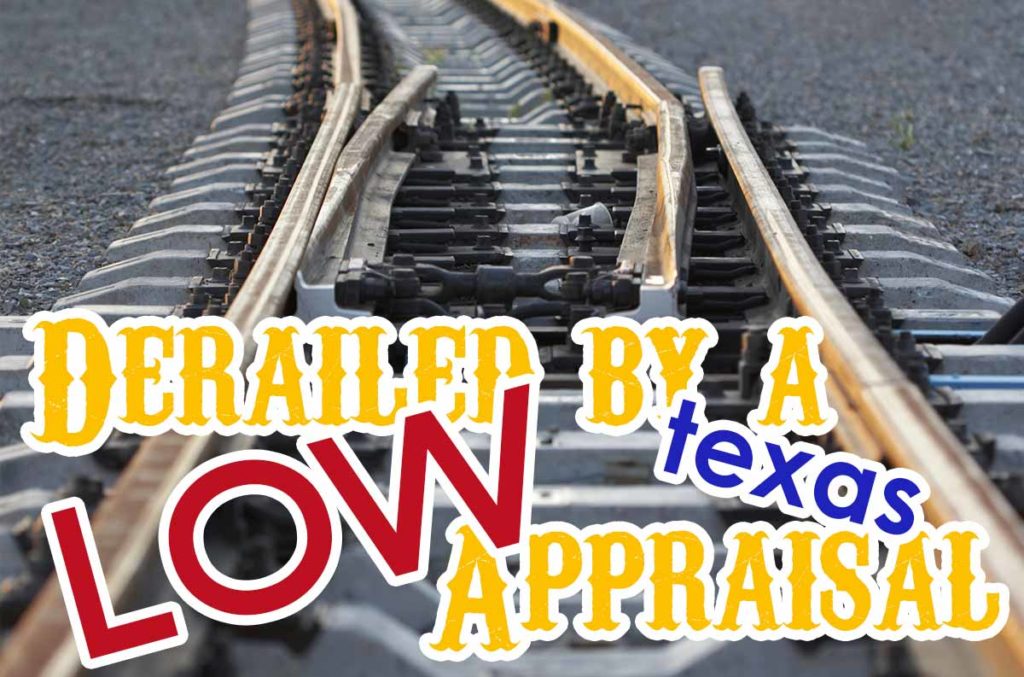Takeaways
- Your agent can prepare a packet for the appraiser to have handy
- Adjust your strategy to your market
- Failing that, it’s time to negotiate with the other party
When you listed your home, should have been based on your agent’s CMA. Maybe you priced it at the high end of reasonable, or perhaps even deliberately overpriced your home. If that is the case, and managed to get a contract with a buyer, you may be at risk of a low appraisal, and will want to take extra precautions to avoid it.
Pre-gaming the Appraiser
To minimize the chances of a low or erroneous appraisal, it is a best practice for the listing agent to provide appraisers information. Oftentimes, this can be a packet left at the home with “APPRAISER” written boldly across the top (or you can email it to the appraiser when they call to schedule the appraisal). Contrary to a popular misconception, most appraisers appreciate getting this information and anything that makes their job easier, when done professionally.
From Texas appraiser, trainer, and industry celebrity Candy Cooke, the following are the eleven items you want to have ready for your appraiser and in the packet:
- Complete executed contract including all addenda and amendments. The lender does not always send docs to the appraiser.
- Copy of the previous survey. The T-47 Residential Real Property Affidavit (TAR 1907) does not have to be included. The survey provides lots of information for the appraiser including flood hazard area and encroachments.
- List of improvements provided by the homeowner.
- Information about multiple offers. It is up to the sellers how much they want to disclose. They can give copies of all offers, or just bits and pieces.
- Blueprints and Floor Plans. If the property is unique, large, or difficult to measure, plans will help the appraiser.
- A list of sales and listings in the neighborhood that you have deemed similar.
- Information about any off-market sales or pocket listings.
- Information about comparable properties that may have issues. If you know something that is wrong or not disclosed in the MLS, write it on the comp and provide to the appraiser.
- Your CMA.
- Information about what other properties the buyer viewed. This takes cooperation between the buyer and listing agent.
- Information about the neighborhood. This can be a link to neighborhood info.

How to Handle a Low Appraisal
- First, appeal the appraisal, or order a new one if necessary
- Explore all the options to get the appraisal updated
- Failing that, it’s time to negotiate with the other party
Avoiding it By Not Avoiding It
It is not uncommon in a hot market like Austin to add language to the contract that either makes the earnest money non-refundable in the case of a low appraisal, or says the buyer is willing to contribute an amount toward making up an appraisal shortfall. This helps strengthen an offer in markets where low appraisals are common, however, be careful how it is worded and ensure you don’t commit yourself to open-ended obligations (I’ve had appraisals $60,000 short).
Fort Hood Area Appraisers
Dan Pearson
106 Carothers St, Copperas Cove, TX 76522
(254) 542-5468
Watt Taggert
2310 W Ave M, Temple, TX 76504
(254) 791-4900
www.taggartrealty.com
Wes Woolley
4102 S 31st St # 500, Temple, TX 76502
(254) 791-0500
www.weswooleyappraisals.com
Conclusion
Appraisers are generally fine with getting help to do their job. Most of them probably don’t enjoy messing up a deal with a low appraisal any more than home sellers enjoy finding out the home didn’t appraise. They are human, for now. Help set them and yourself up for success.

